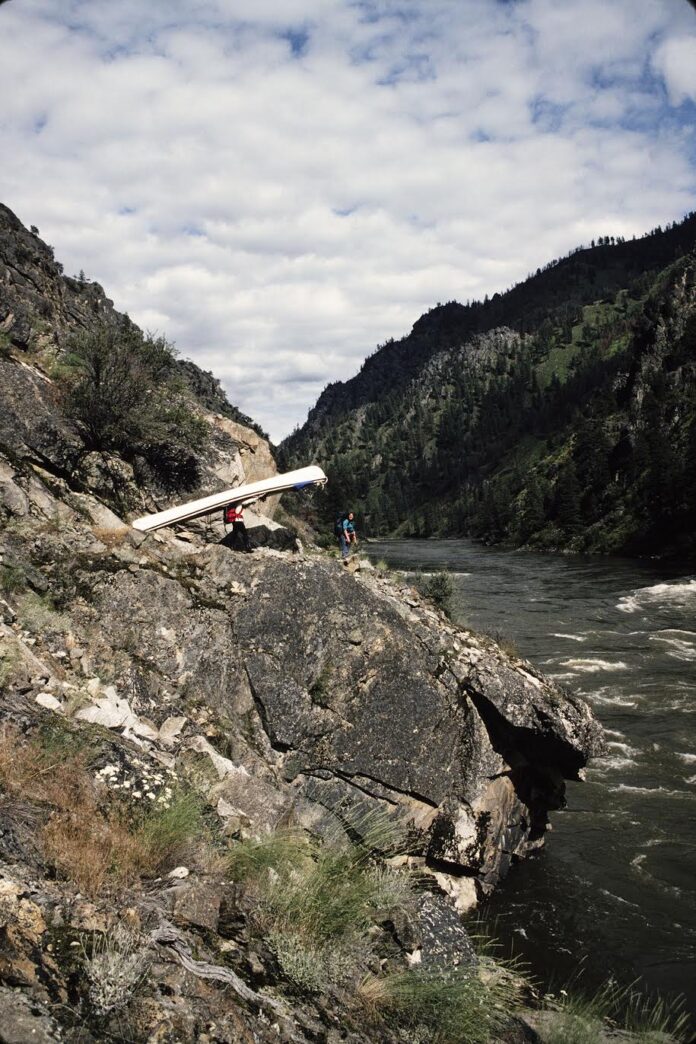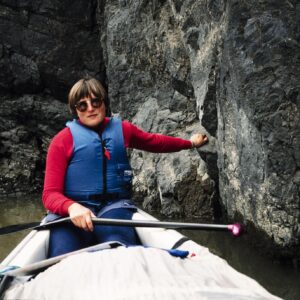
Since quarantine began, I have been living at home with my parents in Maine. I remember missing them so much when I was at school, but now I miss getting my weekly letters in the mail from my dad. I miss phone calls with my mom on Sunday mornings, and while walking back from the library to Braun Hall some nights, a distraction from the chill of a California evening without a sweater. Because we’re around each other so much now, our conversations are somehow less special; we mostly talk about logistics, letting the dog out and doing the dishes.
Sometime during quarantine, I stopped seeing my parents as people — people with wisdom and interesting lives who make me laugh — and I started to see them as my boring old parents. Somehow, I started taking them for granted instead of seeing this time together during quarantine as the unexpected gift it is. This conversation between my mom, Lisa Lisius, and me is the result of my attempt to close the distance that seems to creep in between people when they live closely together, as a reminder not to take important relationships for granted.

River: Do you remember your first canoe trip with Dad?
Lisa: The first trip would have been the Allagash. That would have been the first year we were together, 1987. And we did canoe races. The first time we were in a canoe together was the Passagassawakeag canoe race. The canoeing I had done before that, it was on lakes or little streams, I’d never done any whitewater canoeing. This was like date No. 3, and he was in the stern and I was in the bow. [The stern paddler steers the boat, which is the more technically difficult job, while the bow paddler’s job is more physically demanding.]
Five minutes before the start of the race he said, “Here’s what I want you to know, just three basic strokes: forward, draw and cross draw.” And we survived, and there were a lot of canoes that got filled with water and couldn’t finish.
River: And you were in the stern?
Lisa: No, I was in the bow for that one.
River: Because you didn’t know what you were doing yet.
Lisa: Because it was new. And after that, we started my education to become a stern paddler. […] And then, once I became a stern paddler, there was no way I ever wanted to go back. The bow can be fun, but I’m too much of a control person. I like having the vision of where we’re going, and deciding. I like that big picture, it fits my personality well.
River: [laughs] So that’s why our metaphorical boat doesn’t go as well, why we butt heads sometimes. We’re two stern paddlers in one boat, fighting over who gets to steer and who has to sit in the bow.
Lisa: Well, you’re right, you’re right. It’s true.
But the reason it works well for your dad and me is he’s the detail person, so he’s going to spot that rock I can’t see from the stern. But it also allows him to daydream more, which he loves. And as a photographer, you know, he keeps looking at the world that way. But on our cross-country canoe trip, we thought it would be good for us occasionally to swap out just so that we could appreciate the other person’s job. But of the 433 days of our trip, I bet we probably did that for 10. I hated those days. It just never felt comfortable. It felt like it was 10 times as hard.
River: Do you just want to explain what that canoe trip, Canoe USA, was?
Lisa: It was the name of the expedition that your dad and I took, from the Pacific Ocean to the Atlantic Ocean using inland rivers, traveling by people power. It was 5,100 miles, and 126 miles were portaged [carrying the boat and gear by land]. We started at the mouth of the Columbia River and paddled all the way to South Carolina. It took 14 and a half months. That part was important to your father: he wanted Mother Nature to set his thermometer for a year, to live in a tent, outside for that long.
River: Do you remember the hardest day of the trip?
Lisa: It would have to be the physically hardest day, which meant it was also emotionally hard because it just felt like you were beating your body up. So that was the Salmon River in Idaho. It’s known as a big whitewater rafting river, absolutely gorgeous, but when you’re going upstream, and it was a big water flood year, it was just… [sighs] And there wasn’t any portage pass like we had up on the East Coast to take, it was just rocks that you were slipping and falling on. Although that said, on the days that were physically the most challenging, we worked together the best, your dad and I. It was those long boring days on 15 miles of flat water when you could find things to disagree about.
River: What do you remember bickering about?
Lisa: So, one of the responsibilities of the bow power is to set the cadence, and the responsibility of the stern paddler is to try to match that completely. Because if you’re off, like you see in people that don’t know how to canoe, you’re wasting your effort. If you’re working together, you’re paddling together. Well, your dad is real sensitive, and he always thought I was one-fiftieth of whatever behind, so for the first one-fiftieth of a second, he was always pulling the boat all by himself. And no matter how hard I tried, I could never quite get it perfect, and this is after thousands of miles of paddling together. And so I took that as an incredibly personal insult, that I was not meeting his expectations.
River: Why did you take the trip then, what motivated you at the time?
Lisa: Well, I have Type 1 diabetes and my brother died of Type 1 diabetes when he was 33 years old. I was 33 years old when we started Canoe USA. You don’t want to put off your adventure of a lifetime. It felt like we got the opportunity, because your dad lost his job at the university. Very few people regret saying yes to their adventures, they regret letting them slip by.
River: Why not some other type of adventure? Why this one? Why by canoe? Why are we water people?
Lisa: Well you know, the sunrise with the fog on the water and the moose through the mist, the eagle overhead, fish jumping in the water. Water is where life congregates. All living things are drawn to water, it’s our life force, so if you spend time near water you get to see caribou and elk and antelope, they make their way to the water.
I remember camping in Montana in the middle of nowhere, and I crawled out of the tent in the middle of the night to pee and the northern lights — I’ve never seen them that well. They were just all over, that bright green, just, and I might never get that opportunity again, but I happened to have it that one time.
River: What else have you seen on these trips that’s made you think, “That’s why I’m here?”
Lisa: In Labrador (Canada), our first trip in 1992. It was a three-week trip. On this trip we had seen the occasional caribou, and seen all sorts of tufts of fur on the bushes. And we knew North America’s largest caribou herd was on the Labrador peninsula and it migrates. After supper, on the other side of the river, we saw six big male caribou. And after an hour or two, with them watching us, they came down to the water where they must usually cross. Finally, the first one or two swam over, and for the next hour there’s more, crossing like that, tentatively.
After about three hours, they decided we were not a threat, and so for the next 15 hours — it takes a long time for 10,000 caribou to swim across a river — you start to see females, and babies and the juveniles, a huge herd. And we watched until we couldn’t keep our eyes open, and when we went to bed, the caribou kept tripping on our tent’s ropes, so we had to pull them up. You could hear them, their feet and sniffing us and our tent all night long. And the next morning they were still coming. That was their migration, and we just happened to be at the right place at the right time.
And later the next morning, we did see probably a dozen of juveniles who had drowned, who were bloated and floating downstream, really sad to see. And on the other side, there were small little ones that wouldn’t follow their mothers, they were too afraid to cross and they were just crying on the other side. And that’s nature too.
River: Why did you name me River? Why not some other water body? Something else in nature?
Lisa: There’s so many metaphors to rivers. But your dad and I, for us, it was always about going to the highest place you could paddle, and paddling the river to the sea — it’s just the ultimate journey. The ultimate evolution, from a tiny little stream that’s just big enough to float a canoe through down the quiet water, the rapids, the waterfalls that you have to portage around, all until you hit the ocean.
This is the first “Conversation from quarantine.” If you are interested in contributing to this ongoing series, please email brewere@oxy.edu and mlee3@oxy.edu.
![]()



































